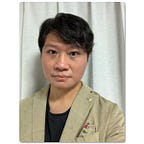Freedom of Peaceful Assembly at risk in Hong Kong
As I’m writing the chapter on culture and freedom of expression in Hong Kong for my thesis, I’m writing this short passage to study the ridiculous nature and lawlessness of the Hong Kong police’s move today to arrest 15 pro-democracy activists for “illegal assembly”.
Amid the pandemic of COVID-19 (which evidently known to originate from Wuhan city in Hubei province in China), the Hong Kong government, obviously aided and abetted by the Chinese government, once again shocked the world to arrest organisers and participants of protests in Hong Kong. This time, Apple Daily’s founder Jimmy Lai, Martin Lee, veteran pro-democracy activist and founding chairman of Democratic Party of Hong Kong, former legislators Albert Ho, Margaret Ng, Lee Cheuk-yan, Leung Kwok-hung (better known as “Long Hair”), Yeung Sum, Cyd Ho, Sin Chung-kai and Au Nok-hin, lawmaker Leung Yiu-chung, activists Avery Ng, Raphael Wong, Figo Chan and Richard Tsoi are the 15 people arrested in the abrupt police raid on Saturday.
This news is shocking for many in Hong Kong as everyone is occupied with dealing with the coronavirus pandemic like many people around the world. The Hong Kong government and the Hong Kong police instead spend their energy to take this sudden move to threaten Hong Kong people’s freedom of peaceful assembly.
They were arrested on suspicion of organising the protests between 18 August 2019 protest when 1.7 million people in Hong Kong joined and 1 October 2019. The huge turnout on 18 August was due to the public discontent over the Hong Kong police’s inaction to investigate the violent attack by a mob of over 100 rod-wielding men dressed in white against black-clad protesters and citizens in Yuen Long MTR station on 21 July 2019. At least 45 people were injured. Up till now, the police has done little or in fact nothing to investigate the attack but they instead arrest the organisers of the protests.
Freedom of peaceful assembly is protected under Article 22 of Hong Kong Basic Law which reads: “Hong Kong residents shall have freedom of speech, of the press and of publication; freedom of association, of assembly, of procession and demonstration; and the right and freedom to form and join trade unions, and to strike.” Article 17 of Hong Kong Bill of Rights Ordinance also protects the right of peaceful assembly, which reads: “The right of peaceful assembly shall be recognized. No restrictions may be placed on the exercise of this right other than those imposed in conformity with the law and which are necessary in a democratic society in the interests of national security or public safety, public order (ordre public), the protection of public health or morals or the protection of the rights and freedoms of others.” This provision is actually taken from article 21 of the International Covenant on Civil and Political Rights (ICCPR), which the UK extended to Hong Kong in 1976.
Strangely, despite of these protections, sections 13–17 in the Public Order Ordinance contradict the protection of the rights to peaceful assembly. These sections have given too much power to the police. For those who want to stage a public procession, the requirement is to inform the Commissioner of Police of the intention and that the Commissioner “notifies the person that he has no objection to the procession taking place or is taken to have issued a notice of no objection”. So, it is NOT any kind of application or seeking permission from the police but it’s only a matter about notification. The UN Human Rights Committee, which reviews the implementation of the ICCPR, repeatedly raised concerns about the provisions in the Public Order Ordinance that “the application in practice of certain terms contained in the Public Order Ordinance, inter alia, “disorder in public places” or “unlawful assembly”, which may facilitate excessive restriction the Covenant rights”. In the Concluding Observations of Hong Kong’s report in 1999, the Human Rights Committee made it very clear that it is “concerned that the Public Order Ordinance could be applied to restrict unduly enjoyment of the rights guaranteed in article 21 of the Covenant”.
What is the biggest concern here is the arbitrary nature of what “disorder in public places” or “unlawful assembly” means while the requirement for holding a demonstration stated above is to get a “notice of no objection” from the Commissioner of Police. What are the criteria for getting the “notice of no objection”? The police can have many excuses to refuse to issue a “notice of no objection”, such as citing national security or public safety concerns. Yet, it’s simply the discretion of the police to decide what would be the criteria to strike a balance between protecting the right to peaceful assembly and the legitimate restriction of the right. One may say that it would be the job of the courts to give clear guidelines on making judgement in this regard. However, it’s questionable how we can believe the courts are functioning independently enough (note: I’m not saying the courts in Hong Kong are not independent but how independent they are is indeed an issue) as Beijing’s influence is evidently shown in many recent court judgements on cases involving freedom of peaceful assembly and the problematic term of “unlawful assembly”.
